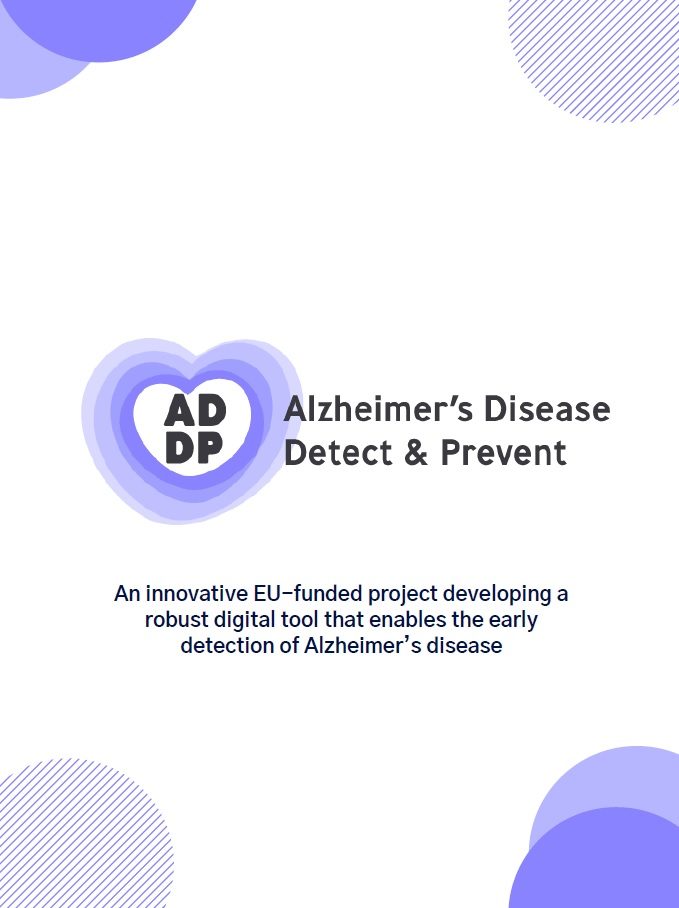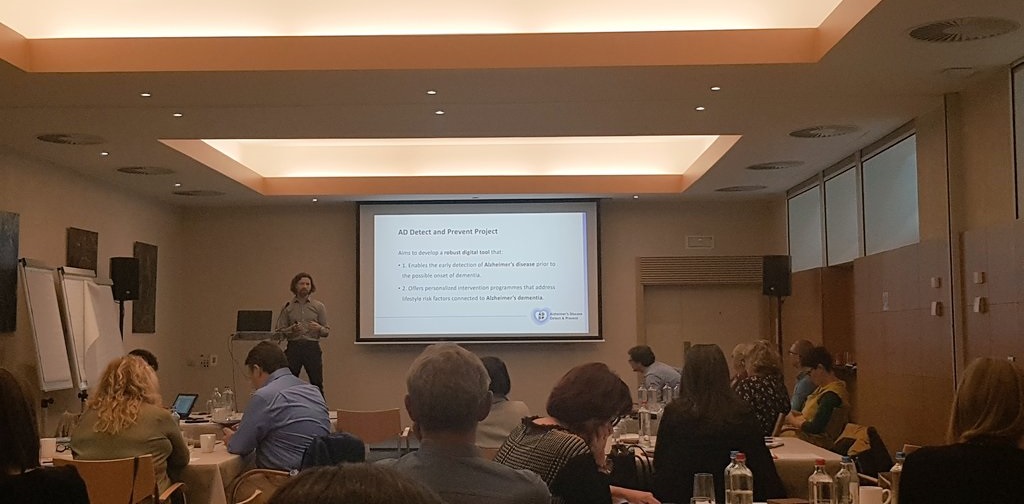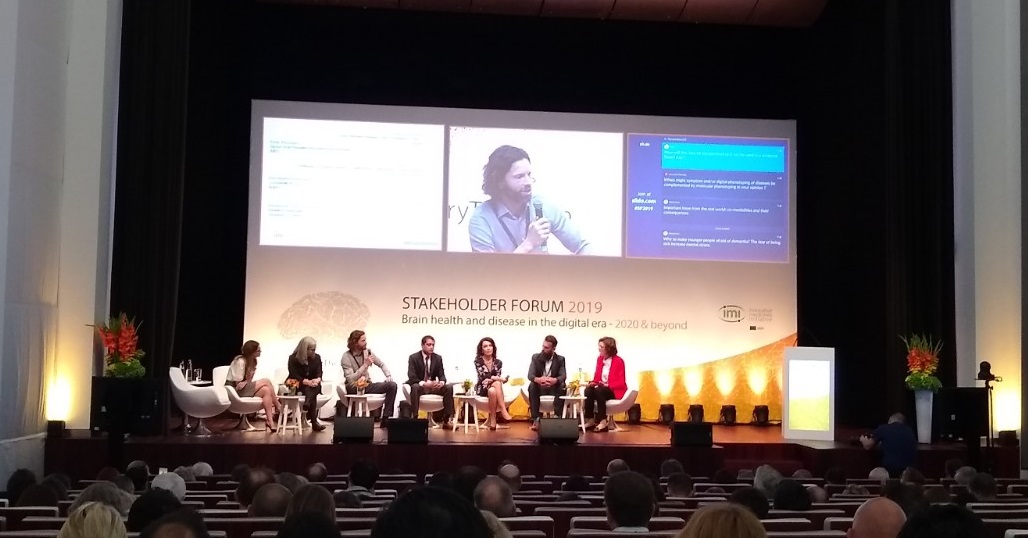
The Alzheimer’s disease (AD) Detect and Prevent consortium organized its first webinar on 23rd June 2020. This virtual meeting focussed on “Enhancing the early detection of Alzheimer’s disease through digital technologies” and brought together the perspectives of leading experts on some of the challenges and opportunities provided by digital health solutions. The webinar also enabled the developers of the AD Detect and Prevent tool to present updates on the development of this innovative solution.
The webinar was attended by approximately 80 participants, mainly representing scientific societies, patient groups, academics and other health stakeholders.
Kim Baden-Kristensen, CEO and Co-founder of the Danish digital therapeutics company Brain+, kicked-off the meeting by introducing the speakers and highlighting some of the present-day challenges presented by AD and dementia.
The introduction was followed by a testimony by Dr. Helen Rochford-Brennan, the current Chair of the European Working Group of People with Dementia (EWGPWD) and a Global Dementia Ambassador, who provided a moving and powerful message (delivered by Carmel Geoghegan on Dr. Rochford-Brennan’s behalf) as a patient advocate living with the Alzheimer’s type of dementia. Through her testimony, Dr. Rochford-Brennan shared how this condition has impacted her life and the lives of her family and loved ones as well as how she became involved in cognitive rehabilitation research and patient advocacy. In particular, the testimony of Dr. Rochford-Brennan highlighted the need to create a culture in which people living with AD have a voice and are included in driving action on the illness: “For me, it is important to be at the heart of the fight for change, I need to influence change in the way we talk about Alzheimer’s and how we develop Alzheimer-inclusive societies.”
The next speaker was Prof. Masud Husain, Professor of Neurology and Cognitive Neuroscience at Oxford University, who shared his perspective on the application of digital technologies in detecting cognitive decline. As part of his presentation, Prof. Husain shed light on the rationale for applying digital technologies, elaborating on issues such as large-scale screening for dementia, detecting the earliest manifestations of dementia, possibilities for remote assessment and the potential of cognitive training for altering the trajectory of cognitive decline. He then provided various examples of how digital technologies are being applied, including the “Sea Hero Quest” app that was designed to assess people’s navigation skills. He closed with highlighting the potential of emerging digital tools, including improved screening, early diagnosis and remote monitoring, but also some potential negative outcomes associated with using these technologies.
The second key opinion leader to speak was Prof. Martin Rossor who is the NIHR National Director for Dementia Research and a Principal Research Associate at the UCL Queen Square Institute of Neurology. He underlined that the emergence and deployment of digital technologies is an exciting development and elaborated on some of the opportunities provided by these tools to enhance novel clinical trial designs. Though, more generally, he also highlighted some of the challenges in gaining molecular diagnoses as well as issues around the conceptualization of both AD and dementia.
This presentation was followed by Prof. Eric Salmon, Medical Director of the GIGA Cyclotron Research Centre, who shared his perspective on cognitive and neuroimaging challenges associated with preclinical AD. Prof. Salmon highlighted some of the issues in searching for an early synaptopathy that is more directly related to cognitive difficulties. He also shared his perspective on the relation between cognitive efficiency and lifestyle factors in normal and late midlife.
The webinar concluded with a presentation by Prof. Masud Husain and Ulrik Ditlev Eriksen on the work that is being conducted within the framework of the EU-funded AD Detect and Prevent project. A key highlight of this presentation was the introduction to the gamified “Starry Night” tablet task that uses stellar constellations to assess short-term memory. Moreover, Ulrik Eriksen explained the wider objectives of the project, i.e. those related to risk detection and risk reduction, as well as the key challenges associated with early engagement, screening and lifestyle intervention that the digital health tool aims to tackle. He also introduced the main steps in the AD Detect and Prevent solution, including its potential for health risk and AD screening.
Please contact contact@addp.eu should you wish to receive further information about the webinar or the AD Detect and Prevent project.







